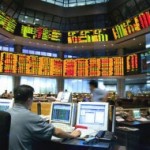U.S. stocks have had quite a rally in the last month, but in the large-cap space, the clear leader has been the Dow Jones Industrial Average (DJIA). While much of the strength in the DJIA has been chalked up to the index being full of old-line industrial stocks that stand to benefit from a Trump victory, practically all of the outperformance can be summed up in two words – Goldman Sachs (NYSE:GS ).
the Dow Jones Industrial Average (DJIA). While much of the strength in the DJIA has been chalked up to the index being full of old-line industrial stocks that stand to benefit from a Trump victory, practically all of the outperformance can be summed up in two words – Goldman Sachs (NYSE:GS ).
Written by Bespoke Investment GroupBespoke Investment Group
Because the DJIA is price weighted, stocks in the index with the highest share prices have the highest weighting, while stocks with the lowest share prices have the lowest weighting… This is a ridiculous method of weighting an index, but the DJIA has withstood the test of time, so who are we to argue. Plus, it’s not like we haven’t seen other methods of weighting over the years that weren’t just as peculiar.
The table below lists each of the DJIA’s current components sorted by their current weighting in the index along with their performance since election day and how many points each stock has contributed to the DJIA’s overall gain since election day.
Looking at the current weightings of the index, the DJIA is looking increasingly top heavy.









Leave A Comment